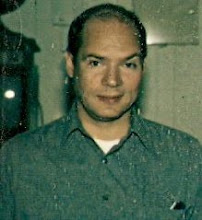Sweet Sixteen During the Nixon Regime
By Paul Iorio
Paul Iorio's contemporaneous journal from March 1974 noting his participation in an anti-Nixon rally that turned out to be targeted by corrupt government operatives.
Last week, I found out for the very first time that an event in my past life resembled a kooky conspiracy theory. Except for one thing: the kooky theory was actually founded in solid, documented fact.
Here's the story. I was idly searching newspaper search engines some days ago when I happened on a shocker, a story from February 24, 1975, in The New York Times, about an activist group I'd been a very public part of during the end of the Nixon era. The organization was called Bay Area Citizens Opposed to Nixon, with the catchy acronym B.A.C.O.N., the "bay area" being Tampa, Florida, where I partly grew up. B.A.C.O.N. consisted of mostly high school and college students, though there were some adults involved, too (including my dad, a casual participant in it).
Our Big Moment happened on March 30, 1974, when B.A.C.O.N. organized a demonstration in favor of the impeachment of Nixon to coincide with a visit to Tampa by vice president Ford that same day. The day came and we marched up and down a sidewalk with placards and chanted slogans in a relatively predictable fashion.
Being one of the organizers of the event, I was briefly interviewed by a reporter from The Tampa Tribune. The next day, in the March 31, 1974, edition of The Tribune, I was quoted by name in the paper and described as a "marshal" of the demonstration.
What I didn't know until last week, until I searched the newspaper, was that that protest (which I was virtually the face of, by dint of the fact that I was covered in The Tribune) had been infiltrated by F.B.I. agents and former military intelligence operatives who had tried to sabotage and wreck the group. They were doing this as part of the infamous Cointelpro (Counterintelligence) program, which undermined and did dirty tricks to various political organizations. Cointelpro had supposedly been discontinued in 1971, but it evidently was still going on -- and right under my teenage nose -- according to the FBI source interviewed by the Times.
As the Times reported in 1975:
"Another organization that Mr. Burton said the F.B.I. encouraged him and his two fellow operatives, both former military intelligence officers, to “get control of” was the Bay Area Citizens Opposed to Nixon, which conducted demonstrations in and around Tampa during the Nixon Administration's Watergate difficulties.
The group organized a protest last March when then Vice President Ford visited Tampa, he said, adding that shortly before the visit, he and the two other operatives met with bureau agents to plan for their participation in the demonstration."
Detail of a news story that appeared in the February 24, 1975, edition of The New York Times detailing the FBI's corrupt undermining of an anti-Nixon activist group.
As I read this, I thought, that's my group!
And then events from '74 started making sense that didn't make sense to me at the time. My memories shot back to an older activist who was apparently passing himself off as a Maoist and was very aggressive about having me work for his group. I didn't understand at the time why my dad was warning me off him, but now I know exactly why.
Yeah, I was just 16, but going on 30 in terms of politics. I already had had considerable experience as a student activist and community politico. I wrote for a Florida edition of Cesar Chavez's United Farmworkers Union newsletter in '74, was elected president of my high school student council in April 1974 (in a schoolwide vote of 2,500 students), was one of the s.c. presidents selected to meet legislators at the state capital in Tallahassee in '75. Even going back to the sixth grade in 1968, when I'd been inspired by the protests of the Chicago 8 that summer, I organized a schoolwide cafeteria boycott (in protest of bathroom restrictions) that was so effective that almost every student brought a bag lunch that week; that earned me a trip to the principal's office for a one-on-one tongue lashing.
So, in the university community of north Tampa in the first half of the 1970s, I was a known quantity as a local activist.
I'd always suspected I'd been on the government radar in some way in the Nixon years, but I didn't know that for a fact until I searched the Times' archive last week.
The questions in my mind just multiplied as I read the 1975 news story. Why didn't I know about this -- for almost 45 years -- until 2019? Was so-and-so a saboteur? Had my reputation been smeared at the time without me knowing about it? How did all this impact my later life?
I went through my old contemporaneous diaries and journals from that month and year. And, there it was, in blue ink in a loose leaf folder, plain as day under April 1974: "Ford demonstration + B.A.C.O.N.," amid other references to the spring of '74 like "Elected Prez," a reference to my election win; a speech I'd given; a prankish streaking across a college campus by me and my friends; induction into the National Honor Society.
Yes, I was a robust, American teenager exercising my Constitutional rights to the max in the Nixon era. But I had no idea until 2019 that my own rights had been illegally violated by a notorious gang of government crooks.
The Tampa Tribune's March 31, 1974, edition, which included an article describing Paul Iorio as a "marshal" of the demonstration against Nixon.
As one can see by this index of photos of Paul Iorio in his yearbook for the '74/'75 school year, he was very politically active!




